Young activists from urban communities and concerned suburbanites were among the hundreds of thousands of people who marched in Washington, D.C., on Saturday in support of stronger gun-control measures.
The March for Our Lives was the culmination of weeks of activism led by student survivors of a mass shooting at Marjory Stoneman High School in Parkland, Florida, last month, which killed 17 people. The march brought together adults and children from a wide variety of backgrounds, with diverse ideas for solutions to gun violence, as Pacific Standard found from speaking to demonstrators. Below are just some of the voices we heard from:
“This Is the Closest to Home It’s Ever Been”
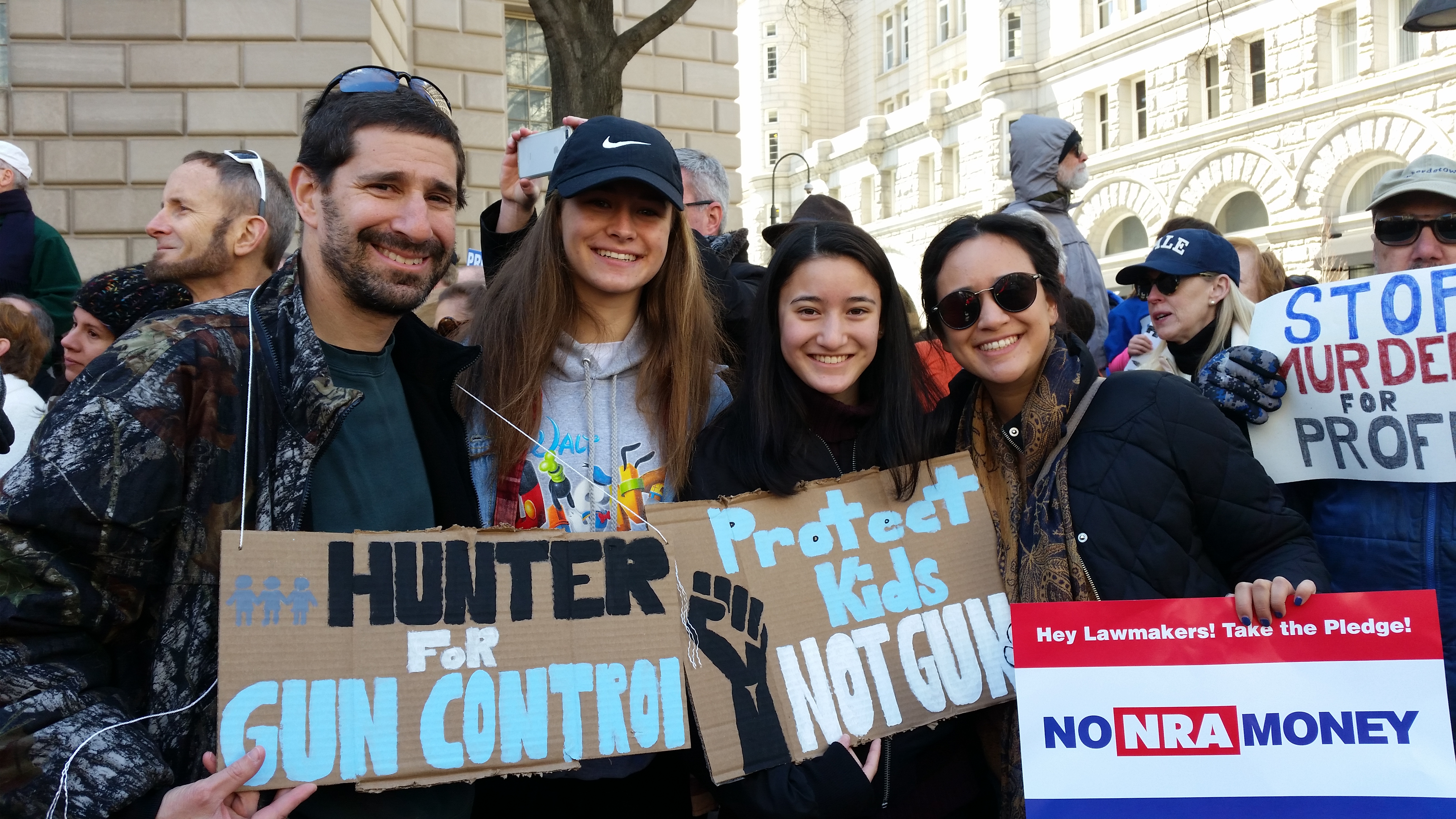
(Photo: Francie Diep/Pacific Standard)
Calvert County, Maryland, native Danny Bennett was joined by his daughters, Hope, 16, and Leanna, 23, as well as their friend Sidney, 16. Calvert County is just half an hour away from Great Mills High School, where a student shot two classmates last week. One of the victims later died. “This is the closest to home it’s ever been,” Leanna says, noting that their high school, Northern High, plays in the same sports conference as Great Mills.
“Like the posters say, I don’t want to be next,” Sidney says.
As for Danny? “I’m out here to show that there’s hunters that want common sense gun laws,” he explains. He would like to see adults held responsible in the event that a minor obtains their firearm and uses it to harm others. The Great Mills shooter had used his father’s gun to shoot his 16-year-old ex-girlfriend.
Getting Their Voice in the Conversation
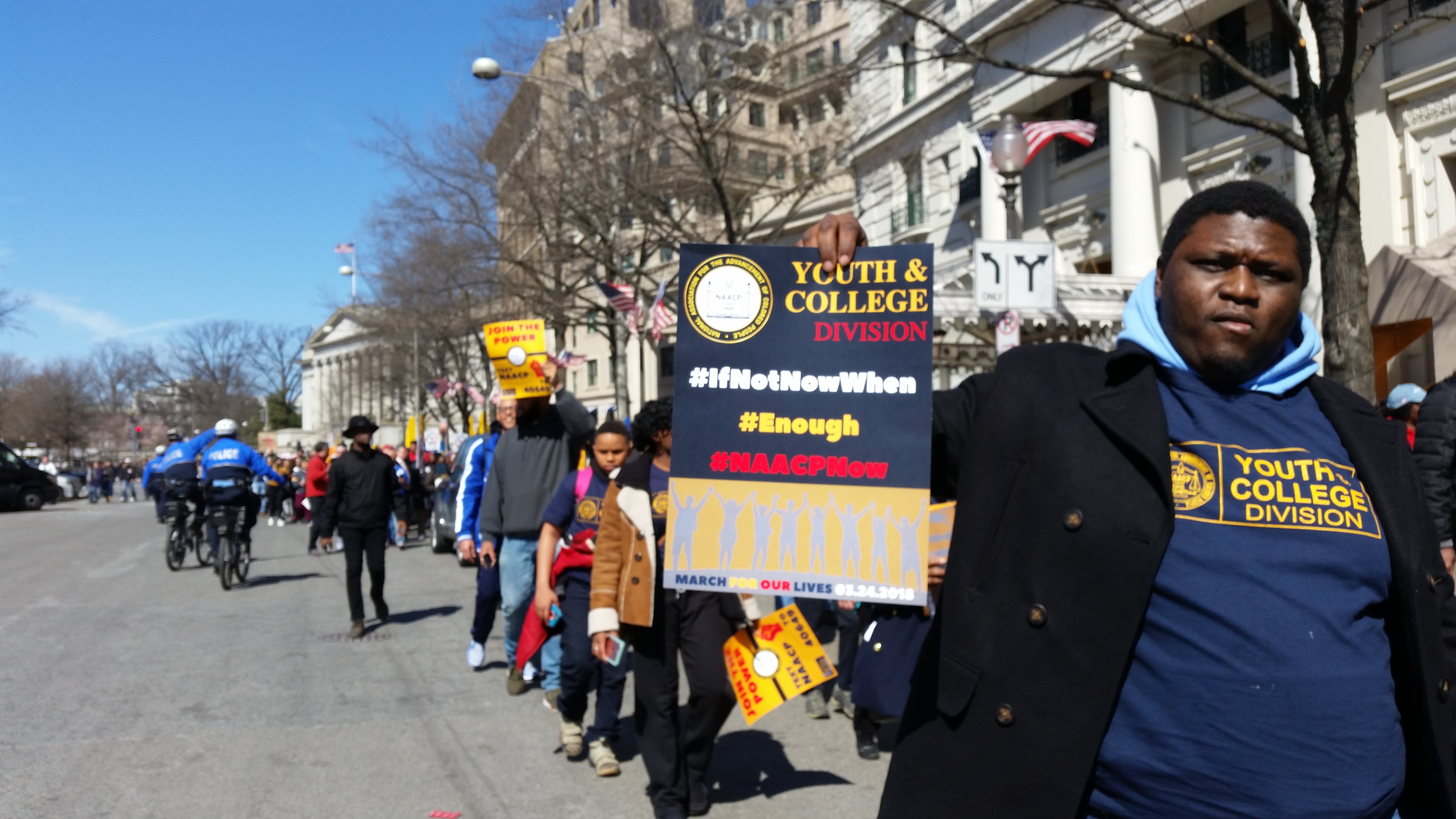
(Photo: Francie Diep/Pacific Standard)
African-American activists have been calling for gun and police reform since the mid-1980s, says Jamar Boyd, president of the Georgia chapter of the National Association for the Advancement of Colored People’s Youth and College Division. “But it’s not our voices that sound good. It’s not our images that are on the cover of Time magazine.”
That’s why about 90 Georgia NAACP Youth and College Division members attended the march, ranging in age from elementary school to college. “We’re here to add our voices to the conversation,” Boyd says.
Gun deaths disproportionately affect black Americans. Homicide is the No. 1 killer of black boys and men aged 15 to 34, and, for black girls and women aged 15 to 24, it’s No. 2. Solutions Boyd wants to see include a ban on assault rifles; longer, more thorough background checks; and an increase in the buying age for firearms to 21.
Support From Harlem
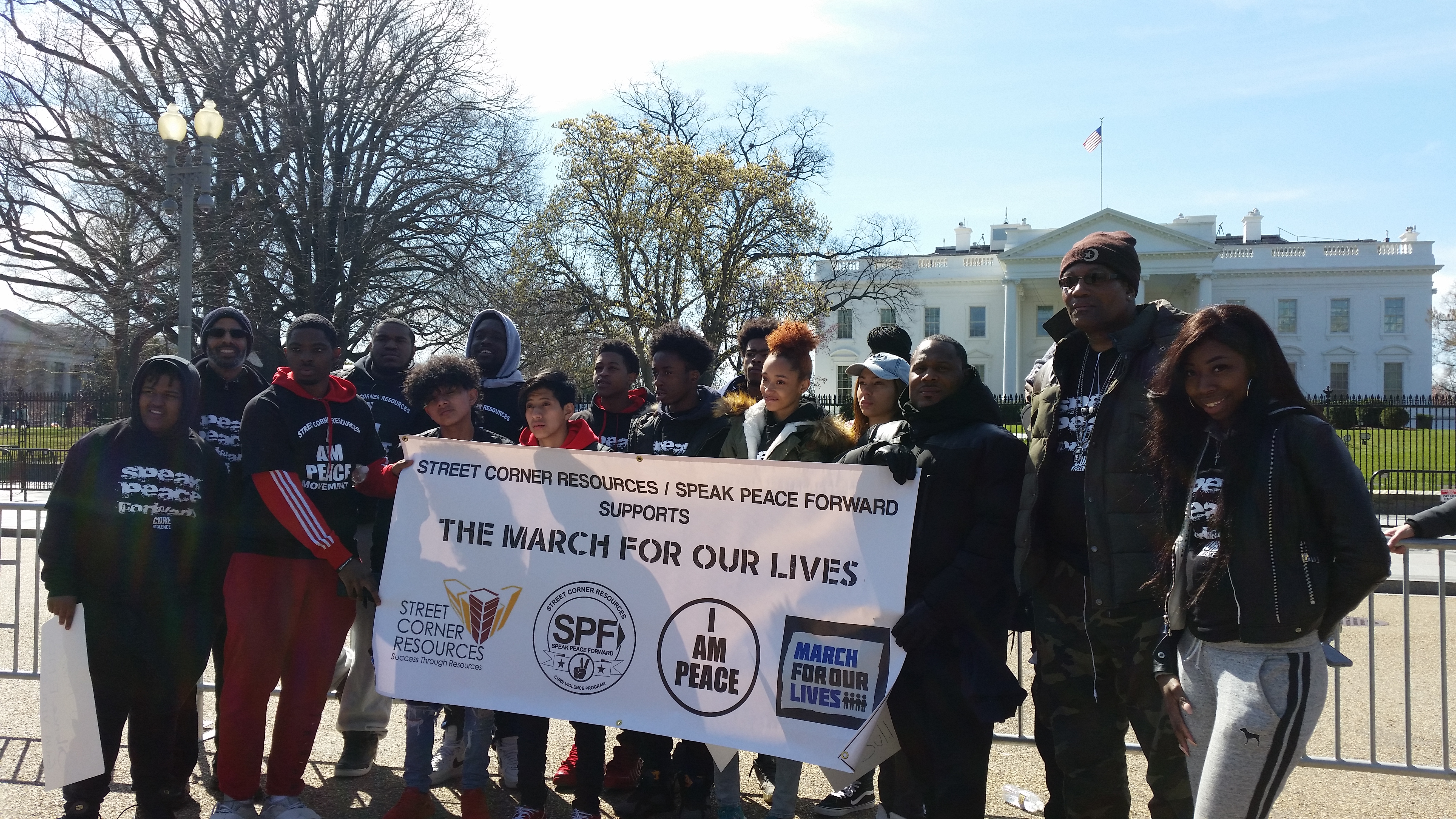
(Photo: Francie Diep/Pacific Standard)
Street Corner Resources, an anti-violence program based in New York City’s Harlem neighborhood, sent 22 people to Washington, D.C., for the March for Our Lives. About 16 are young adults, says Abdul-Kareem Muhammad, the group’s administrative coordinator. “We deal with the issue of gun violence every day,” he says. “We wanted to lend our voice and our support to this movement.”
Street Corner Resources offers education and employment support, in hopes of keeping young people from getting involved in gangs, which are a major reason for gun deaths. Last year, the non-profit got a contract from the mayor’s office to implement Cure Violence, a community program has helped reduce homicides in parts of Chicago.
The Family That Drove Drom Kentucky to March
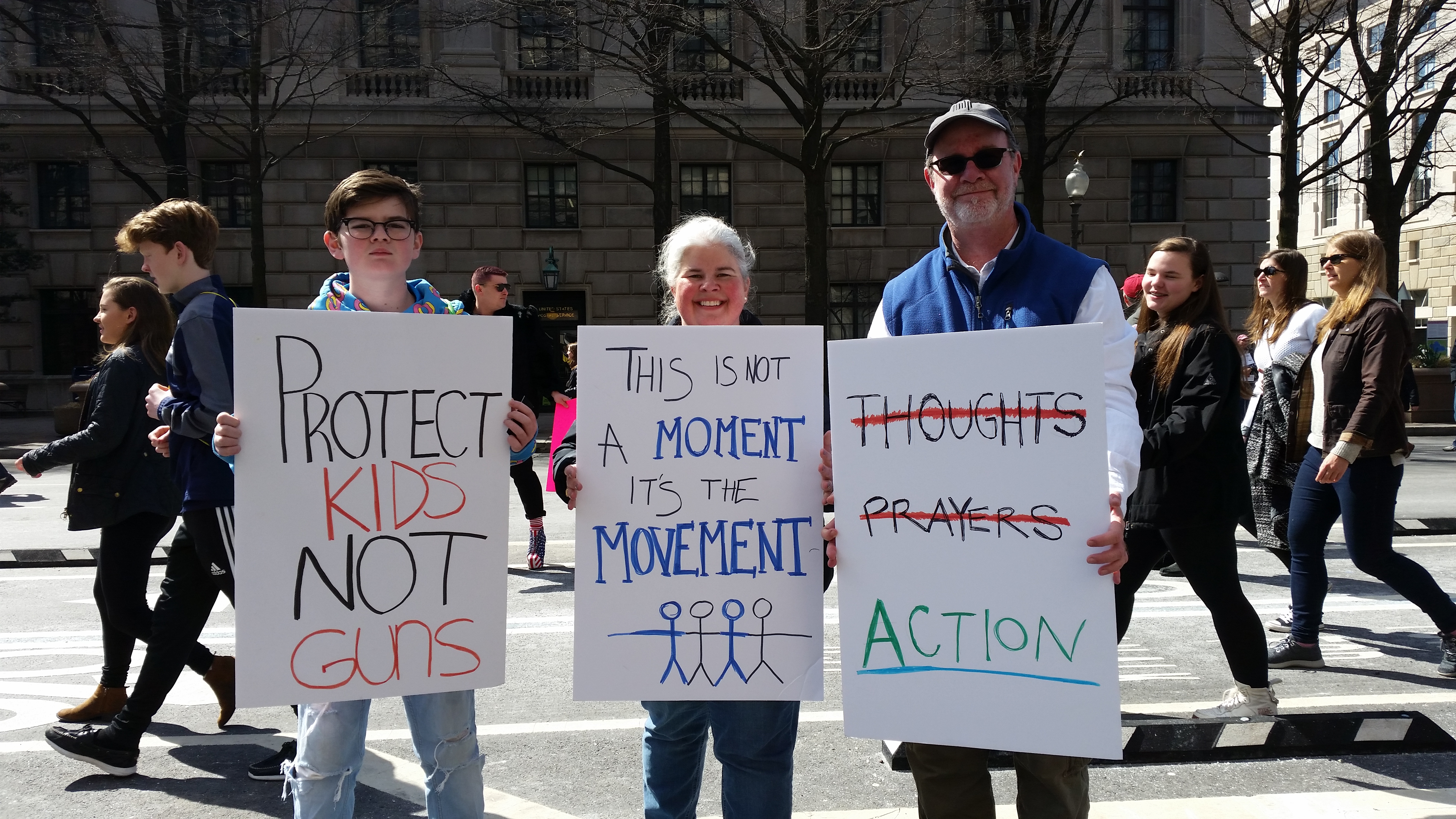
(Photo: Francie Diep/Pacific Standard)
Eighth-grader Isaac Barnett’s family drove 10 hours from Louisville, Kentucky, to attend this march. “We thought it’d be cool to be part of a huge group,” Isaac says.
“I wanted him to see that every single one of these people is a vote,” says Johanna Hynes, Isaac’s mom. Policies she wants to see implemented include an assault weapons ban, universal background checks for gun buyers, and an age minimum of 21 to purchase a firearm.
Back home, the family has a close friend who was shot in a “family situation.” At Meyzeek Middle School, where Isaac goes, about half of the students recently participated in a walkout in support for gun control. But some kids in school oppose gun control. “It’s a little tense, but it’s not that bad,” Isaac says.
Luke’s Mom
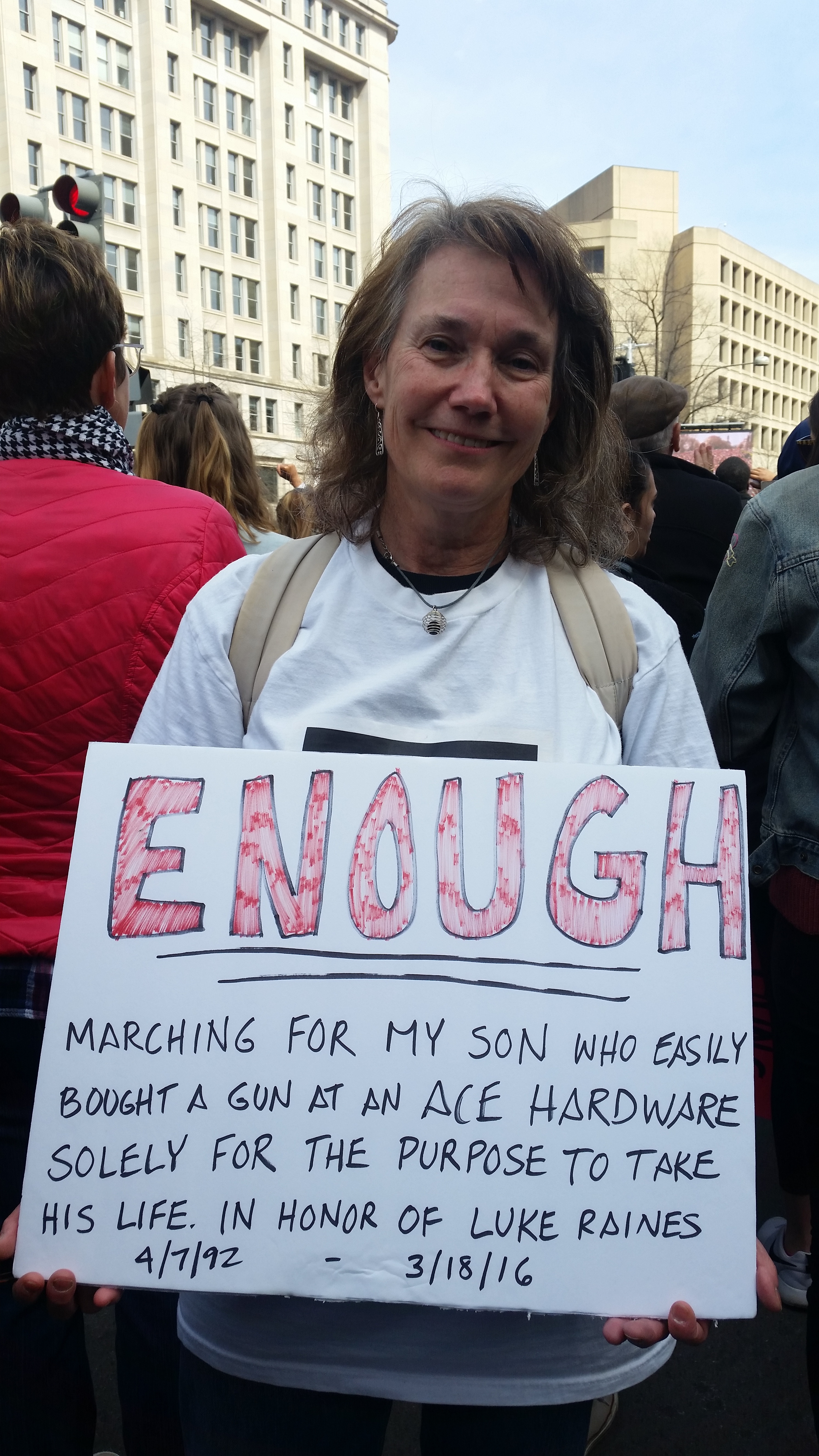
(Photo: Francie Diep/Pacific Standard)
Missy Raines had never liked guns, but her opinion was cemented after her son used a firearm to commit suicide in 2016. At minimum, she wants to see long waiting periods for gun purchasers—she mentioned a year—as well as the requirement that buyers give a reason for their purchase. If she could, she would have the Second Amendment repealed. “I would like to see guns go away,” she says.
One reason for her stance is how helpless she was to stop Luke from buying a firearm, even though she suspects he had bipolar disorder. She didn’t have a formal diagnosis for him, and he was over 18 at the time of his purchase.
A Few First-Time Marchers
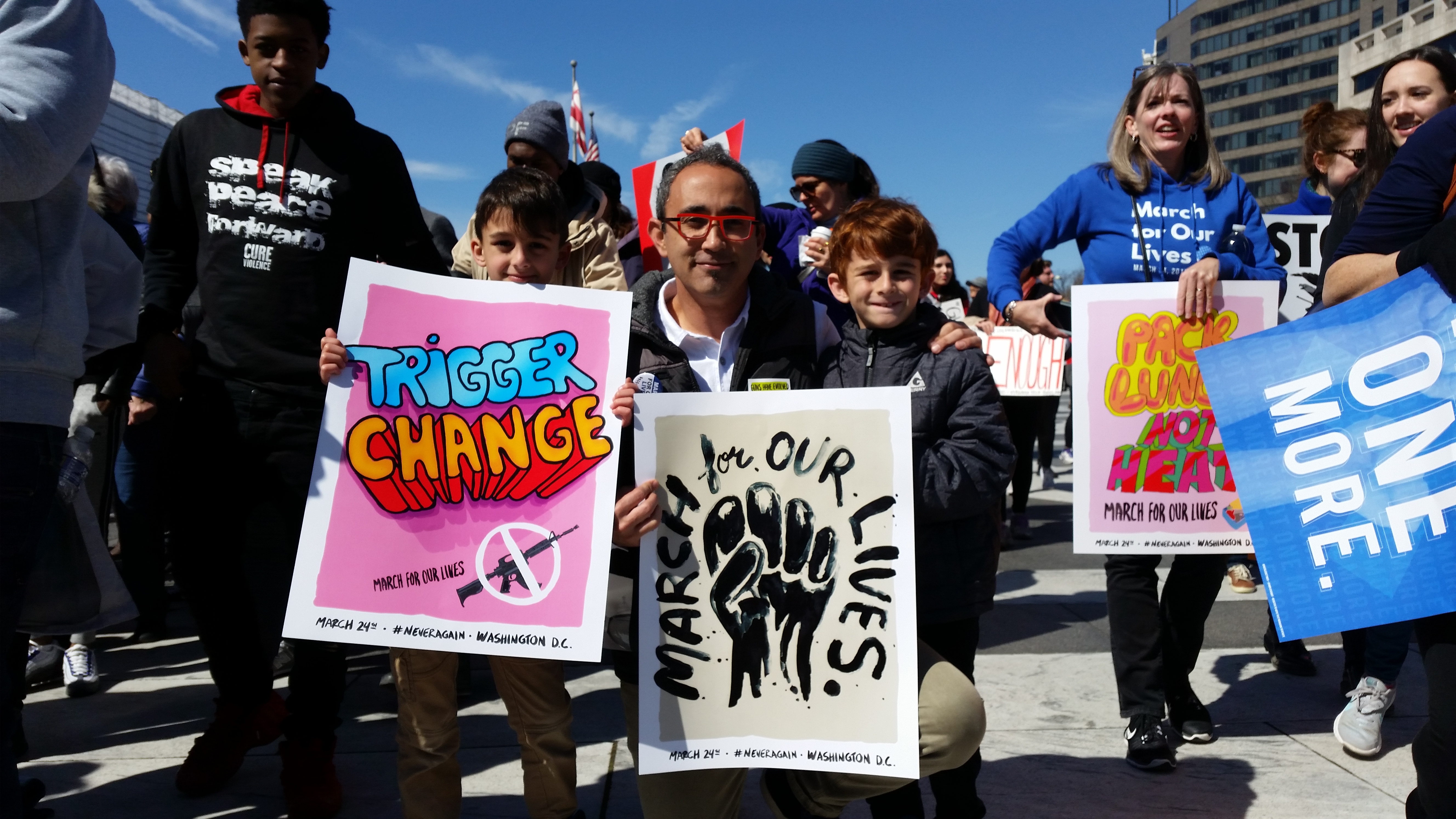
(Photo: Francie Diep/Pacific Standard)
Sam Venus lives with Shaman and Maurice only a mile away from the Pulse nightclub in Orlando, where a shooter killed 49 people in 2016. Memories of that massacre, as well the fresh horror of the Marjory Stoneman Douglas shooting, galvanized them to travel to Washington, D.C. “We want to save children and not let them die,” says seven-year-old Maurice.
“We don’t want anybody getting hurt,” adds Shaman, 8. “Nobody.”

After marching several blocks, the protesters converged in front of a stage, where the program reflected their diversity. Over three hours, survivors of school shootings at surburban Marjory Stoneman Douglas High School and Sandy Hook Elementary School shared the stage with activists from South Los Angeles, Chicago, Brooklyn, and Washington, D.C. All were young, and nearly all had either survived a school shooting or had had a sibling die from street violence. They called for assault weapons bans, expanded background checks, more resources for schools in communities with high rates of homicide, and an end to what they saw as the outsize influence of the staunchly anti-gun-control National Rifle Association in American politics.
About halfway through, Jaclyn Corin, a Marjory Stoneman survivor, announced she had a “surprise guest.” She then walked onstage, holding hands with a much younger African-American girl. It was nine-year-old Yolanda Renee King, Martin Luther King Jr.’s granddaughter.
“I have a dream that enough is enough,” Yolanda said, before leading the crowd in a chant: “Spread the word, spread the word, all across the nation, we are going to be a great generation.”




